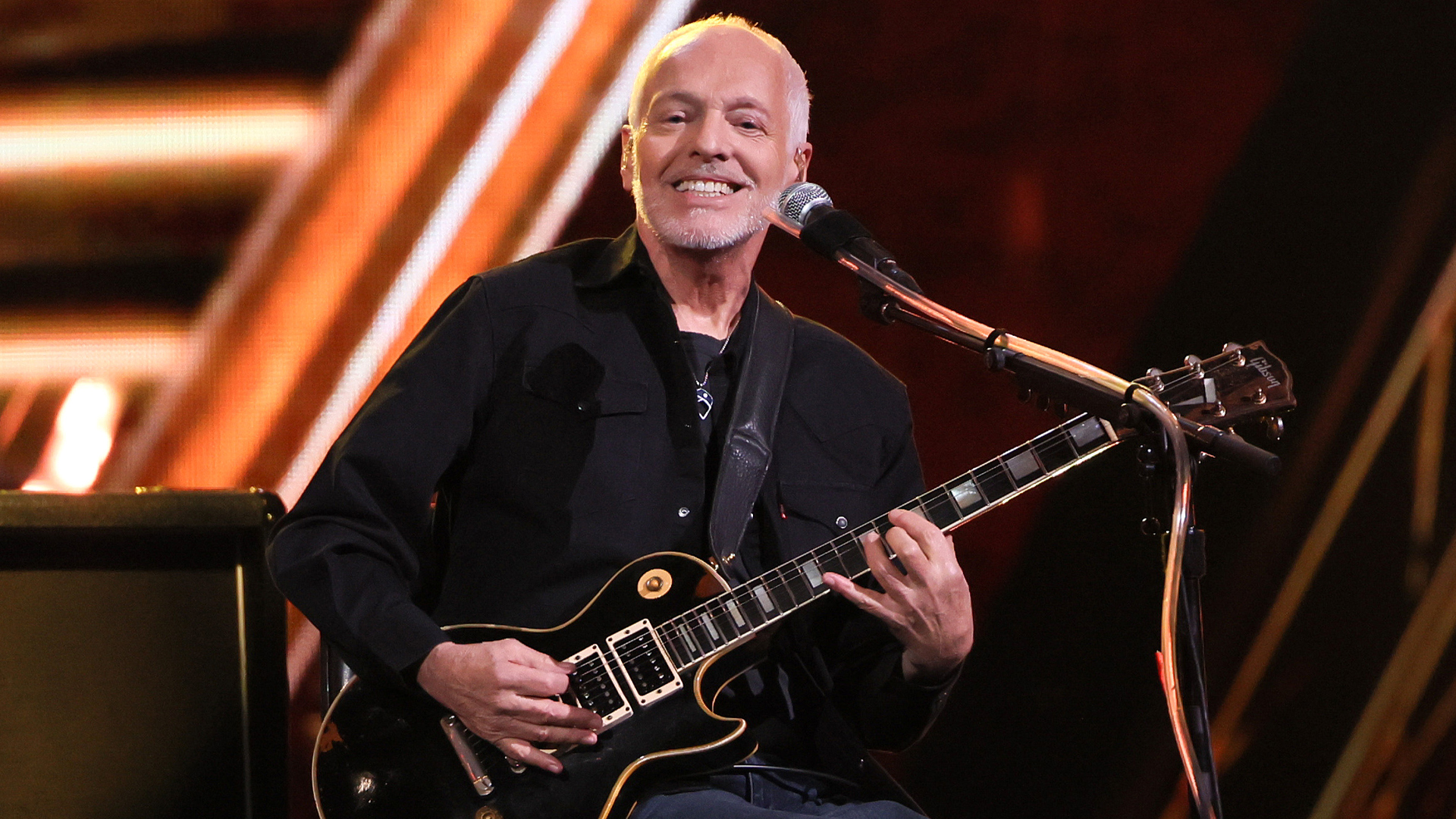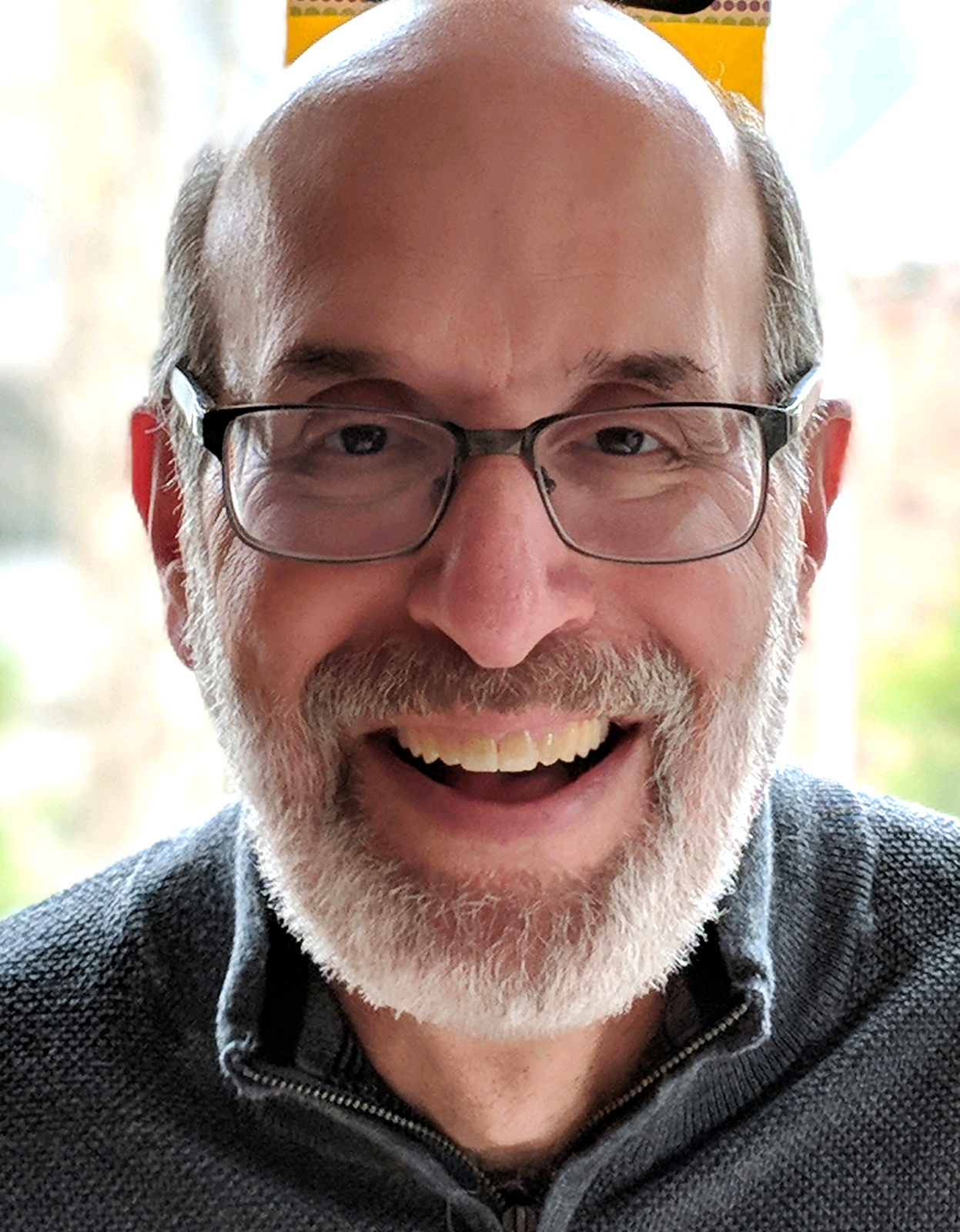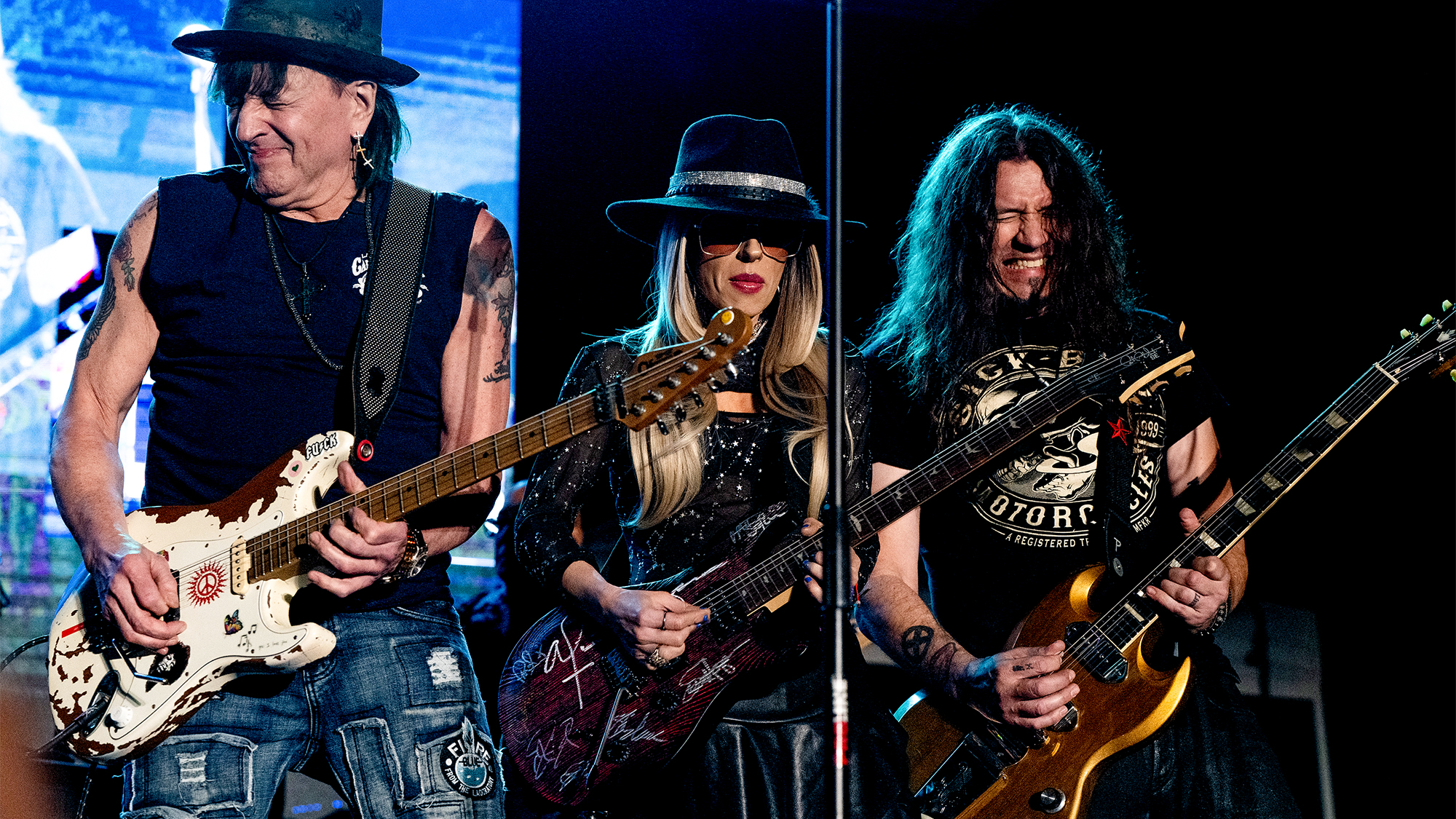People say, ‘Do you think you'll be able to go out for 10 days'? I'm like, 'I can't tell you.’ ” Peter Frampton gives health update as he gets his Rock Hall induction
The guitarist, who uses a cane and sits while performing, says he's determined to "play for as long as I'm able"

Peter Frampton declined an invitation to sit down as he enters a backstage interview area at Cleveland's Rocket Mortgage FieldHouse on Saturday, October 19, shortly after his emotionally charged induction into the Rock and Roll Hall of Fame.
"I might not get up," he quipped.
That, of course is due to the Inclusion Body Myositis (IBM), a degenerative order, that he's been battling for the past 10 years and made public about six years ago. But it was also because Frampton was still floating on air after his long-awaited (and overdue) Rock Hall honor on Saturday. It included a robust induction speech from Roger Daltrey — the two have been friends since Frampton's band the Herd opened for the Who on its first tour during the mid ’60s — and a truncated but chops-filled rendition of "Do You Feel Like We Do" performed with another pal, Keith Urban.
"It's just a huge honor getting to play with him, period — and that song, of all songs," Urban said afterward. "He's got such a control over sensitivity and dynamics and intent. He makes it look easy, but it's really hard to do what he does."
Frampton, who was accompanied by all of his children at the ceremony, found the Rock Hall experience — including an appearance at the new inductees' plaque dedication on Friday — "totally overwhelming for me, because I'm a person of the moment. When the nominations have come out over the years, or the inductees, I’d…” Frampton grumbles. “But I never really thought about it. I figured if it's not to be it's not to be. So now that it's a reality, it's almost more overwhelming than I thought it was going to be. So, yeah, it's a big deal."
That, Frampton added, was hammered home during rehearsals, when he turned around at one point and saw "this 60-foot photo" of himself on a screen behind the stage. "I said, 'Wow, look at that. Is that his son?!' " he says with a laugh.
This year's class of inductees also included some of Frampton's own influences, including late British blues men John Mayall and Alexis Korner, as well as his longtime friend Foreigner guitarist Mick Jones, whose band was also inducted this year. "I am so thrilled Foreigner are getting in as the same time as me, because we do have so many connections,” Frampton says. That includes Rick Wills, the longtime Foreigner bassist who played on Frampton's first three solo albums and co-wrote "Do You Feel Like We Do."
All the latest guitar news, interviews, lessons, reviews, deals and more, direct to your inbox!
"I saw Rick earlier," Frampton says. "He said, 'I'm only here because of you.' I said, 'I know.' [laughs] He said, 'No, you brought me to America.' I said, 'That's right.' I didn't even think about it. It's wonderful he's here, too."
With his past celebrated, however, Frampton is eyeballing a busy future. That includes a documentary that's being directed by his keyboardist and video partner Rob Arthur, who spent part of the Rock Hall festivities filming interviews — including Daltrey. "Ringo's in it," Frampton reports. "Sheryl's [Crow] in it. Herb Alpert just did an interview; he's such a dear friend, so I'm thrilled he's in it. We've got Heart's Nancy Wilson, Kate Hudson from Almost Famous and [former Rolling Stone bassist] Billy Wyman of course. There’s a lot of really good people in it." Arthur said he had a chunk of the film already edited and hopes to have it out during 2025.
Meanwhile, Frampton is also working on a new album, the followup to 2021's Frampton Forgets the Words and his first of all-original material since Thank You Mr. Churchill in 2010.
"I've got quite a few songs now," he reports, "so I think after Christmas it's time to take it into my big studio. I've got this wonderful studio in Nashville that everyone loves now — and I have to book it to get in now 'cause everyone wants to use it, which is great. There might be a couple of instrumentals on there, but basically the whole thing is new songs." He does not want fans holding their breath for its release, however.
"It'll probably take me awhile to actually finish it, 'cause I'm such a perfectionist — but aren't we all?" he says.
Also potentially on tap for next year are more performances, which Frampton continues to do despite the IBM, though nowadays he enters and exits the stage using a cane and plays sitting down. The IBM "has affected my hands," he acknowledges, "but I still enjoy playing for people, so why am I gonna sit home when I'm still able to play. The reason I was doing the Finale tour was that I didn't want to go out and tour if I wasn't at the top of my game, but I think I'm still playing in top form.
"I didn't think I was going to enjoying playing sitting down, but I can sling the guitar to my right side, kinda like I'm standing but I'm sitting. It's not the ultimate for me but I've learned how to do it and feel a little like I did when I was standing up."
Frampton, who did a short Positively Thankful Tour during September, says "there's talk of going out in the spring for one-more go 'round, I'm hoping," but he acknowledges that he's in a proverbial day-by-day situation with those kinds of decisions. "People say, 'Well, do you think you'll be able to go out for 10 days' in whenever it is. I'm like, 'I can't tell you. I just have to pick up a guitar and tell you, 'It looks good right now.' So I take it as it comes, but I want to go out and play for as long as I'm able."
Gary Graff is an award-winning Detroit-based music journalist and author who writes for a variety of print, online and broadcast outlets. He has written and collaborated on books about Alice Cooper, Neil Young, Bob Seger, Bruce Springsteen and Rock 'n' Roll Myths. He's also the founding editor of the award-winning MusicHound Essential Album Guide series and of the new 501 Essential Albums series. Graff is also a co-founder and co-producer of the annual Detroit Music Awards.


